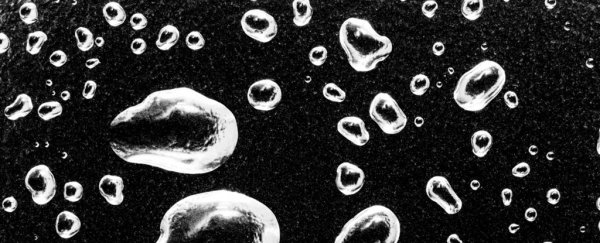Liquid-metal terminators are generally something to be afraid of – but what if the substance was used to fight cancer instead of wiping out humanity?
That's exactly what researchers in the US are working on, having developed a biodegradable liquid metal that can be used as a drug delivery technique to target cancer cells.
"The advance here is that we have a drug-delivery technique that may enhance the effectiveness of the drugs being delivered, can help doctors locate tumours, can be produced in bulk, and appears to be wholly biodegradable with very low toxicity," said Zhen Gu, a biomedical engineer in a joint program at North Carolina's State University and University at Chapel Hill. "And one of the advantages of this technique is that these liquid metal drug carriers – or 'nano-terminators' – are very easy to make."
To make the nano-terminators, the researchers deposit liquid metal (a gallium indium alloy) into a solution with molecules called polymeric ligands. Bombarding the solution with ultrasound waves causes the liquid metal to burst into nanoscale droplets measuring about 100 nanometres in diameter. The ligands attach to the surface of the droplets and form a skin that prevents the alloy from fusing back together T–1000-style.
When the anti-cancer drug doxorubicin is introduced to the solution, the ligands on the nanodroplet absorb it, creating drug-laden vessels that can be separated from the solution and introduced into the bloodstream.
But that's not all. An additional type of ligand that attaches to the nanodroplets can effectively seek out and target cancer cells, by making receptors on the surface of the cells latch onto and ultimately absorb the nanodroplets – which ends up releasing the doxorubicin inside the cancer cell. Hasta la vista.
When inside the cancer cell, the liquid metal reacts with the cell's acidity and releases gallium ions, which actually boosts the performance of the doxorubicin while simultaneously degrading the metal.
"Based on in vitro tests, we believe the liquid metal degrades completely in a matter of days into a form that the body can successfully absorb or filter out, without notable toxic effects," said one of the team, Yue Lu.
The researchers' findings, published in Nature Communications, detail how the nano-terminators were more effective than doxorubicin alone at inhibiting the growth of ovarian cancer cells in testing on a mouse model. The team intends to continue their research, first with a larger animal study, before hopefully moving on to clinical trials with people.
"This was a proof-of-concept study, but very encouraging," said Gu. "Like the fictional Terminator, this carrier is transformable: smashed from bulk material, fused inside cancer cells and eventually degraded and cleared."
